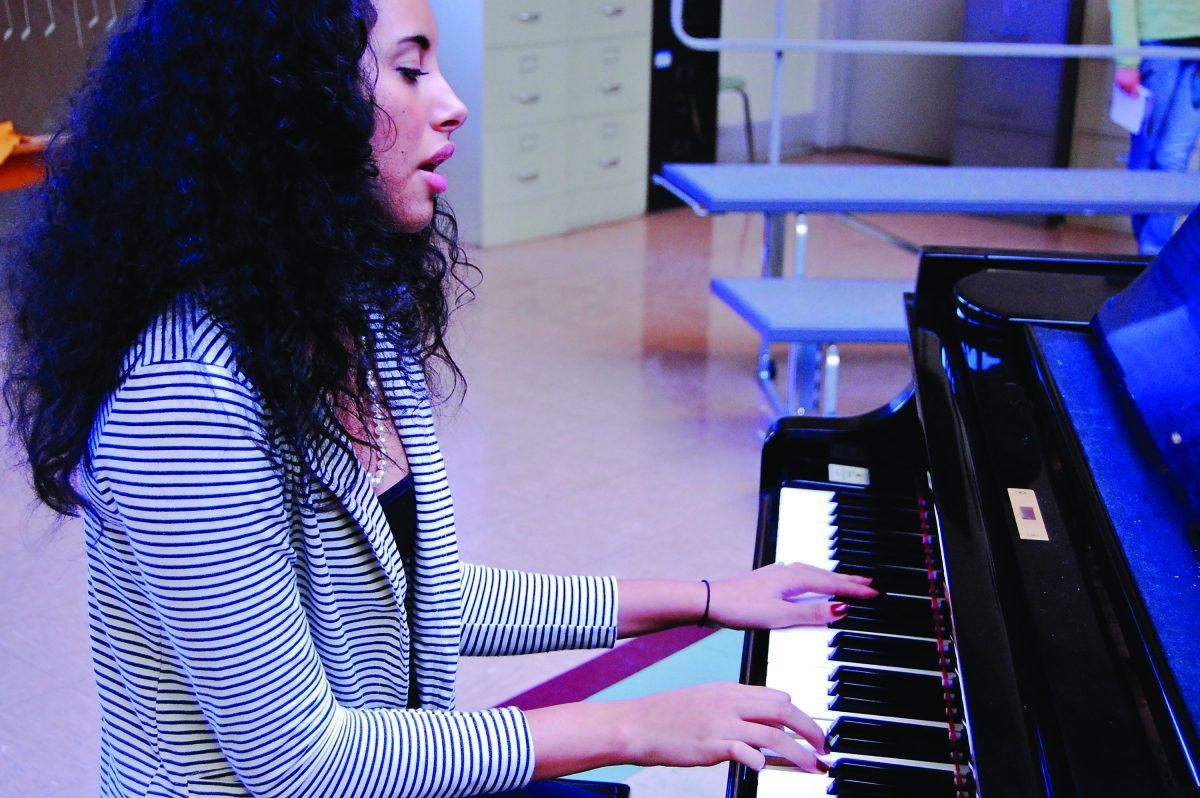Nevil Watson wakes every other morning at 8:30 feeling well-rested and rejuvenated. He pours himself a cup of coffee, then leisurely makes his way to school for another day in his senior year at Grant. With early dismissal every day and late arrival on Grey days, Watson can focus more on classes that interest him, and he has more time to study and relax.
“I really like the four-period block,” Watson says. “I think it’s ‘cause I’m a senior and have all that free time.”
Senior Josie Roberts is thrilled with the new schedule. For her, it means more time to babysit, study for the SAT and apply to colleges. “For me, it’s very convenient because I have school every other day.”
For sophomore James Bennett, the feeling is not mutual. The 90-minute classes in the block schedule are often more of a burden than a blessing, he says. Although Bennett is an avid learner, he finds it difficult to maintain focus through long, lecture-based subjects such as math. In Algebra 3-4, the amount of information being thrown out in a single class can be overwhelming.
“It’s just hard to process it all in one period,” he says.
Welcome to Grant’s latest controversy. The debate is on whether the new schedule is helping or hurting students and the school community. A move by the district last spring changed the class schedule for Grant and the other high schools in the district, moving to the block schedule that has teachers instructing for six of eight classes. Gone are the short, 50-minute classes.
Instead, teachers and students have longer classes but there are only four periods in a day. While the opinions of students are split on the bock schedule, another sort of battle is brewing. It’s a conflict that pits the Portland Association of Teachers against the Portland Public School district.
On one side, some PAT members feel that the schedule change violates the current teachers’ contract. It was made without teacher input, critics say, and the union has filed an official grievance. On the other, administrators say there aren’t many differences between the schedules. Going to a block system is more beneficial to students, they say.
But while the grievance is pending arbitration–a third-party will likely will be brought in to decide the case–students could get caught in the crossfire. If the ruling comes down in favor of the teachers union, the district could be forced to go back to the old schedule, a move that could be disastrous if it happens during the middle of the current school year.
Grant Principal Vivian Orlen says she is “a big fan of the new bell schedule.” She believes that fewer transitions in the day for students will allow them to stay organized and on top of assignments. Also, it will teach them to develop good, long-term work habits. “Students build certain stamina for being able to concentrate for long amounts of time,” she says.
But Jamie Zartler, a Grant English teacher and one of the building’s PAT representatives, says the new schedule is a total violation of the teacher contract. He thinks the schedule issue likely will end badly. “The union warned the district not to do it,” says Zartler.
For years, Grant had a basic schedule. Seven classes in a day, each about 50 minutes in length. While the consistency in the routine of instructing short classes worked for some, other educators felt that a change in the form of longer periods could be beneficial.
Jamin Tinsel teaches ceramics and other art classes. She likes the new block schedule because she can fit more time in for students on their artwork. “I give a warm up, make announcements, students get started on their one hour work time, somewhere in the middle I show a quick demo, and then they clean up,” Tinsel says.
Veteran math teacher Pardis Navi isn’t so sure. She calls the process of converting her old lesson plans to the new time slot a work in progress. Navi, who has taught 18 years at Grant, describes this “whole thing of keeping track of an extra group of students” as hard, but says she is slowly getting used to it.
Navi also believes her freshman math classes need to be shorter and the students need to have daily contact with math teachers.
While Orlen doesn’t believe that teachers’ contracts are being violated, PAT president Gwen Sullivan is concerned with where things are now. She says the contract specifically states that teachers can only teach five of seven classes. “Any deviation of the contract was always done through a contract exception; this was implemented,” she says.
For freshman Sedric Hayes, every class seems too long. Hayes says that he prefers his middle school schedule of six, 45-minute classes over the block. “All my classes seem twenty minutes too long; longer than needed,” he says.
Freshman Henderson Reed Hummel, who is a part of the Access program, considers the block schedule to be a dream. He says it helps to have the time in classes like pre-calculus and English. “I like that I only have four classes each day, it means I have alternate days to complete homework assignments.”
Orlen sees no issue with the shift to the block schedule and actually feels that it honors the teachers’ professionalism. She describes the block system as “radical and new for us but not ‘radical and new.’” Many high schools across Oregon have had a similar system in place for years.
The grievance is scheduled for arbitration in January.
Zartler expects the arbitrator to side with the PAT, saying that the contracts have been violated.
“In the end, whatever the solution is, it’s not going to be good for the kids and I think that’s terrible,” he says.
In Zartler’s view, it is very likely that the district will change the schedule because not changing it would be expensive.
On the other hand, Orlen disagrees. She believes the worst that could happen is teachers receiving an increased salary.
She can’t imagine that either side wants to negatively impact students and thinks that “they’re not gonna change the schedule mid-year.”
With a strong sense of uncertainty surrounding the schedule, nothing is set in stone until the union grievance gets settled. No one can say for sure when that will happen.
But for now, students, teachers, faculty and the rest of the Grant community will have to wait until then.


































